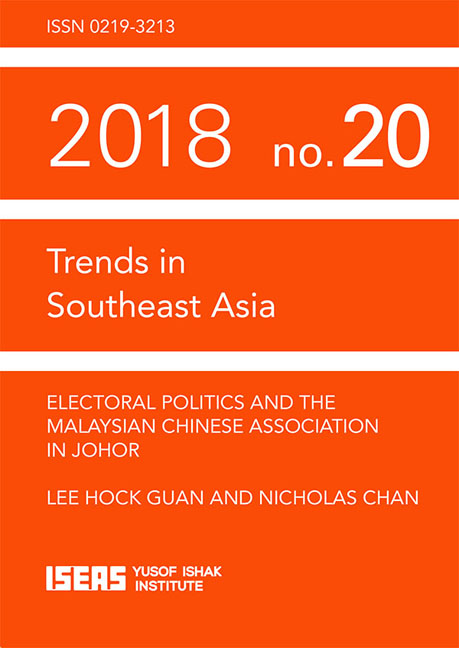Book contents
Electoral Politics and the Malaysian Chinese Association in Johor
Published online by Cambridge University Press: 12 March 2019
Summary
Executive Summary
• Like the United Malays National Organization (UMNO), the Malaysian Chinese Association (MCA) was known for having its bastion in Johor, with the state containing the highest number of parliamentary seats contested and won by the party.
• Two features of the MCA stand out: (1) its relative resilience in that its near elimination in other states since 2008 did not occur in Johor until the recent 14th General Elections, and (2) that most MCA presidents had some connections to Johor, either as having been born in Johor, contested in a Johor constituency, been chairman of the Johor state liaison committee, or a combination of three.
• Although historical institutional linkages such as the New Villages and the Chinese guilds and associations (CGAs) gave the MCA a strong footing in Johor initially, changing political and socioeconomic circumstances gradually eroded the party's support among the Johorean Chinese.
• As it began to lose appeal as an individual party, the MCA Johor had to depend on a strategy of mixed voter pooling so that the significant loss of support from the Chinese could be compensated for by the Malay electorate that was until recently highly supportive of the Barisan Nasional (BN).
• The strategic dependence of the MCA on the UMNO was rendered void when the latter was defeated in the state. As it stands, the revival of the party's standing both within Johor and nationally is far from certain.
- Type
- Chapter
- Information
- Electoral Politics and the Malaysian Chinese Association in Johor , pp. vii - viiiPublisher: ISEAS–Yusof Ishak InstitutePrint publication year: 2018

